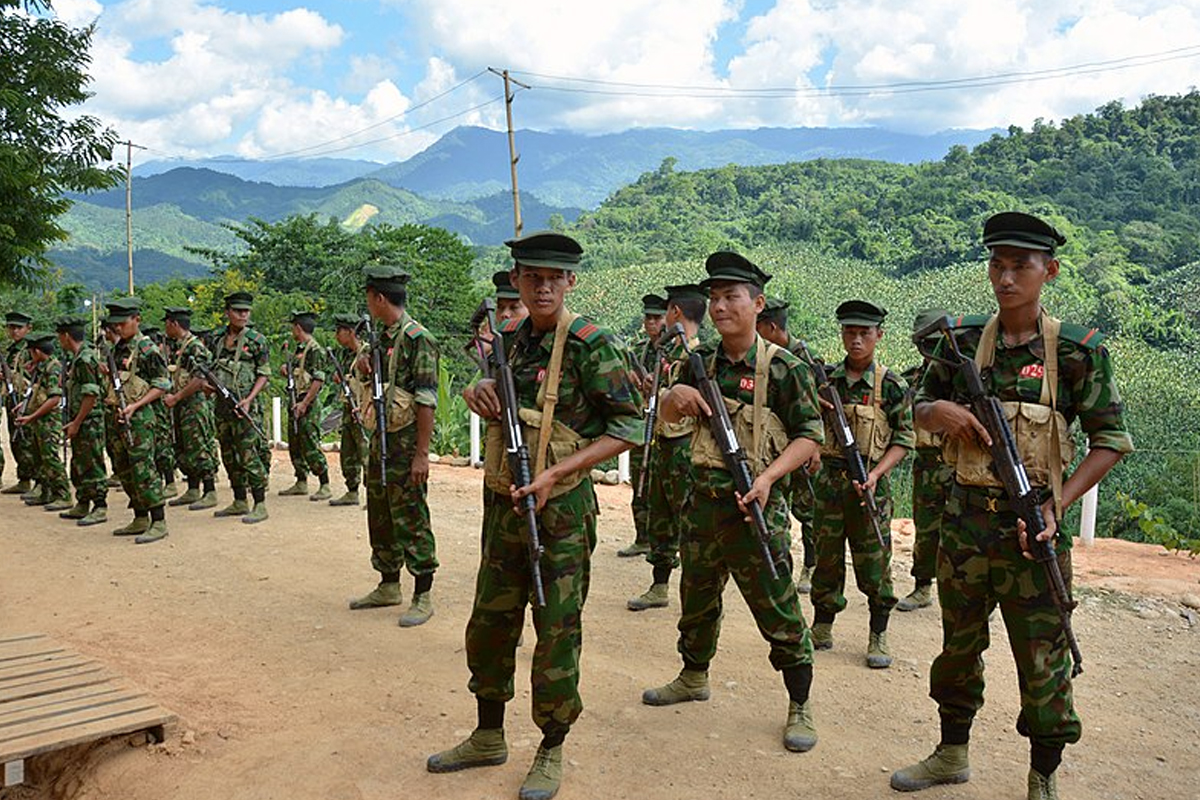UN Expert Slams U.S. Rollback of Myanmar Sanctions, Warns of Deadly Consequences
“It is unconscionable to undermine these efforts by rolling back sanctions on Myanmar arms dealers and junta cronies,” Andrews said in a strongly worded statement issued from the UN Human Rights Office.

The recent decision by the United States to withdraw sanctions against individuals and companies linked to Myanmar’s military junta has been condemned as a dangerous reversal in international policy by Tom Andrews, the United Nations Special Rapporteur on the human rights situation in Myanmar.
Describing the move as “a major step backward,” Andrews warned that the policy change could embolden the junta, provide renewed access to weapons, and severely undermine international efforts to hold Myanmar’s military accountable for its ongoing atrocities.
“It is unconscionable to undermine these efforts by rolling back sanctions on Myanmar arms dealers and junta cronies,” Andrews said in a strongly worded statement issued from the UN Human Rights Office.
Sanctions Lifted on Arms Brokers and Military Enablers
According to Andrews, the individuals and entities removed from U.S. sanctions lists have long been implicated in facilitating arms deals that have enabled the Myanmar military to conduct its brutal campaign against civilians. These actors have reportedly:
-
Brokered the sale of combat aircraft, surveillance systems, and naval weaponry
-
Supplied raw materials and production components used in domestic arms manufacturing
-
Provided technology for armoured personnel carriers (APCs) and battle tanks
Andrews stressed that these actions have directly supported the junta’s escalating violence against civilian populations, including airstrikes and ground attacks on:
-
Displaced persons camps
-
Schools, hospitals, and clinics
-
Religious sites such as churches, monasteries, and mosques
“These attacks likely constitute crimes against humanity and war crimes under international law,” said Andrews. “This is not speculation—it is a well-documented reality.”
Contradictory U.S. Messaging
The rollback of sanctions comes despite ongoing U.S. condemnation of the Myanmar military’s human rights abuses. On 4 February 2025, President Donald Trump renewed the Executive Order that underpins the Myanmar sanctions, citing the military’s 2021 coup and ongoing repression as “an unusual and extraordinary threat” to U.S. foreign policy and national security.
Additionally, at a UN Economic and Social Council meeting on 10 June, Acting U.S. Representative Jonathan Shrier publicly acknowledged that Myanmar’s military continues to:
-
Bomb civilians and destroy places of worship
-
Conscribe ethnic Rohingya to fight for the very military that committed genocide against them
-
Obstruct the delivery of humanitarian aid to conflict-affected areas
The apparent contradiction between the rhetoric and the recent policy shift has drawn sharp criticism from rights advocates, who say the rollback weakens pressure on a regime that thrives on military dominance and international isolation.
Evidence of Sanctions' Effectiveness
Andrews also highlighted recent data suggesting that U.S. and allied sanctions have had measurable impact on the junta’s military capabilities.
Between 2023 and 2024, the volume of military imports by the junta reportedly fell by over 30%, in part due to targeted financial sanctions and export controls imposed by the United States and its international partners.
“The sanctions are working,” Andrews emphasized. “They are slowing down the junta’s ability to import weapons and equipment—and in doing so, they are saving lives.”
He called the reversal “dangerous and disturbing,” especially given the junta’s continued use of sophisticated weapons against unarmed civilians.
Call to Expand, Not Roll Back Sanctions
Instead of weakening existing measures, Andrews urged the Trump administration to expand sanctions, specifically recommending the inclusion of Myanmar Economic Bank, the junta-controlled financial institution used to process payments for military imports.
“Rather than removing sanctions, the U.S. should be targeting the financial heart of the junta’s war machine,” he said.
He further called on Washington to lead an international coalition to reinstate and strengthen punitive measures, especially as the junta becomes increasingly desperate to secure arms amid rising domestic resistance and internal defections.
A Matter of Life and Death
The Special Rapporteur concluded with a stark appeal:
“This is literally a matter of life and death. The international community must stand with the people of Myanmar—not with those who profit from their suffering.”
As conflict continues to rage across Myanmar, particularly in the Sagaing, Chin, and Karenni regions, human rights defenders and UN experts warn that any relaxation of international pressure risks prolonging the crisis and emboldening the military to escalate its attacks with impunity.










